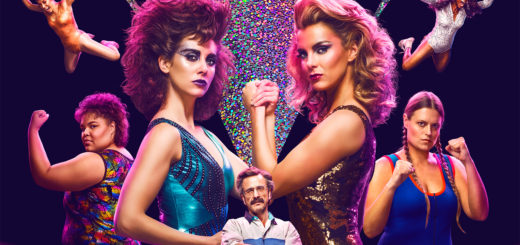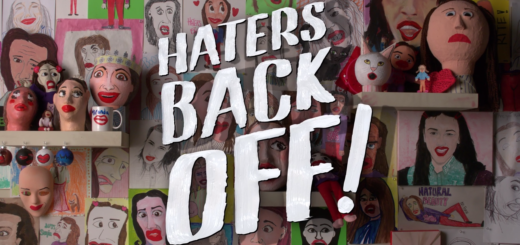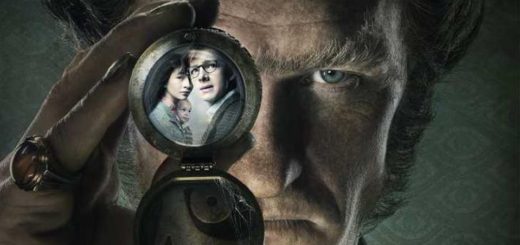CRISIS IN SIX SCENES Review
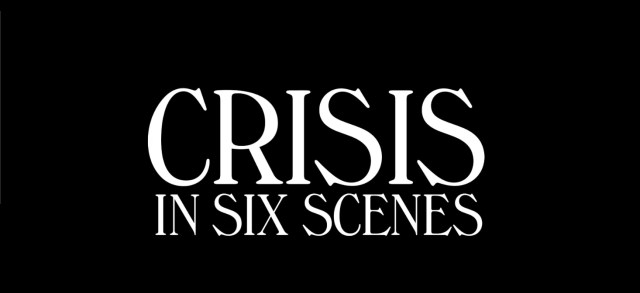
I wanted to like Woody Allen’s CRISIS IN SIX SCENES. I set aside my love-hate relationship with Allen for this purpose, primarily because of my love of the fashion of the 60s and my hope that Miley Cyrus could amaze me. After all, the quality of Allen’s latest works hasn’t consistently reached a level of critical acclaim. But this new medium he’d gotten his hands on made me wonder what he would do with it. Like all of his films, it is beautifully set. He is able to create another interesting world with the layout of an Amazon Original Series. Although Allen strives to keep his audience within that world, escaping it was much too easy.
The first episode felt jarring, like reading a book through binoculars. Never before has Woody Allen’s signature style been captured in a half-hour format. At the end of the episode, I wondered if Woody Allen’s new world would be substantial enough to be serialized. I discovered that it isn’t; it’s an uncomfortable combination from beginning to end. CRISIS IN SIX SCENES guides you with both a title and notion that you are watching a stage play, rather than something from a streaming service. Each episode is an act, with the curtain falling and rising almost miraculously on cue. Allen is aware of this, as this season currently is and will continue standing alone.
The setting is 1960s New York, in the heart of revolt, apathy, and the crossroads between them. This serves as a new playground for Allen, as he takes the role of Sydney Munsinger, an author by the penname “S.J. Munsinger” who is desperately trying to produce a television series. He stars alongside Elaine May, who plays his marriage-counselor wife named Kay. Miley Cyrus also joins the cast, playing Lennie, the revolutionary young woman on the run who hides out in Kay and Syd’s home.
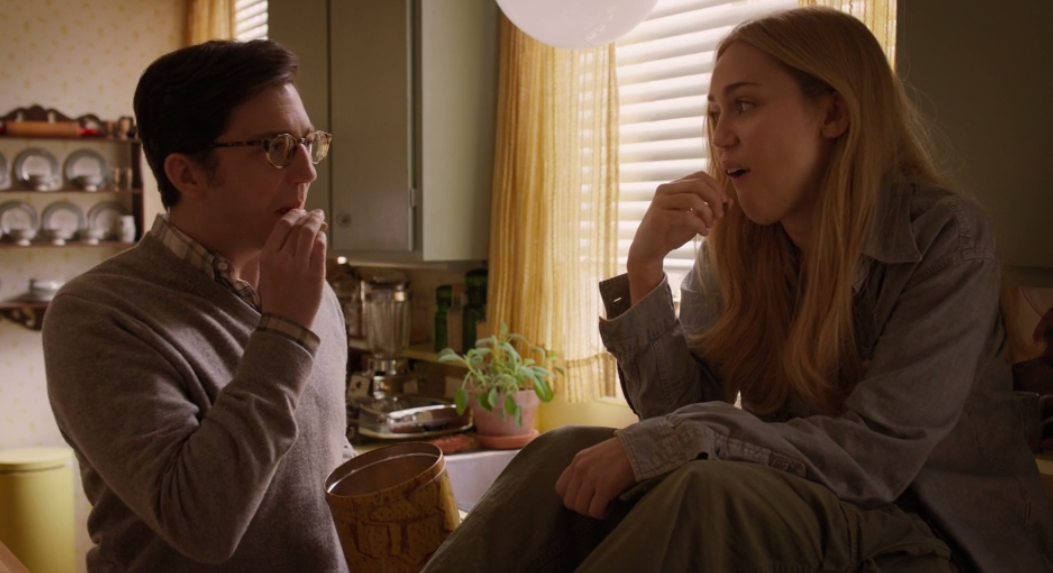
“No way. YOU’RE Hannah Montana!”
This series portrays less of the revolt against “the Man,” and more of a revolt against the common man. It is Woody Allen’s best attempt to showcase another side of the changing times, which is best documented in the exchanges between Lennie and Syd. Lennie, an activist who doubles as a fugitive, constantly berates Syd for his apathy throughout the series. She laments his passivity, and in each episode manages to get under his skin to a larger degree. She’s also able to inspire those around her, from the young boy boarding at Syd’s home to the members of Kay’s book club.
Its concept can almost be considered parallel to our current political climate. Everything that Lennie’s character fights for and all of her manifestos align fairly well with what’s going on in our country today. An even more pressing issue than matters at hand is gaining the attention of other inattentive citizens. The protesters of our time can sometimes be heard through Lennie’s dialogue. It’s the most intriguing and unique part of the series, but Lennie still falls short as a character. She never wavers or changes, and the true meaning of what she’s saying can be lost, as 90% of her dialogue is radical quotes.
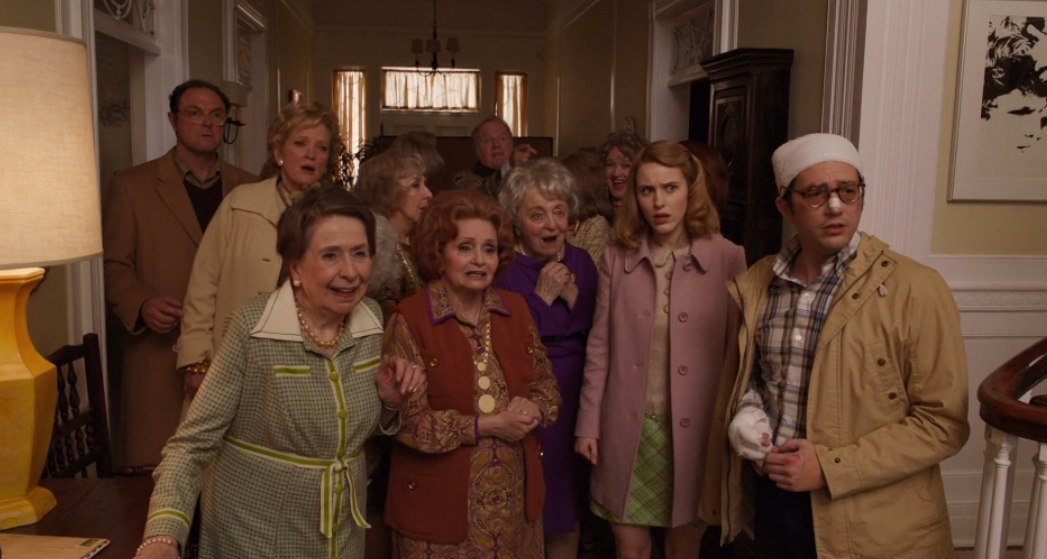
I am certain that I have expressed the same emotion as each person in this photo while watching this series
Speaking of radical quotes, we have Kay Munsinger, wife of Sid. Kay’s eager to help Lennie and learn about what she is doing to better the country, and starts reading everything from Mao to Marx. She’s the only voice of reason between Lennie and Syd, and that trait unfortunately doubles as her only purpose.
Then we have Alan, a character very reminiscent of Bobby Dorfman from CAFE SOCIETY: easily entranced and obsessed with the next pretty young thing that walks by him. With just a glance he is captivated by Lennie, and each conversation with her fuels him to think and act just as radically as her.
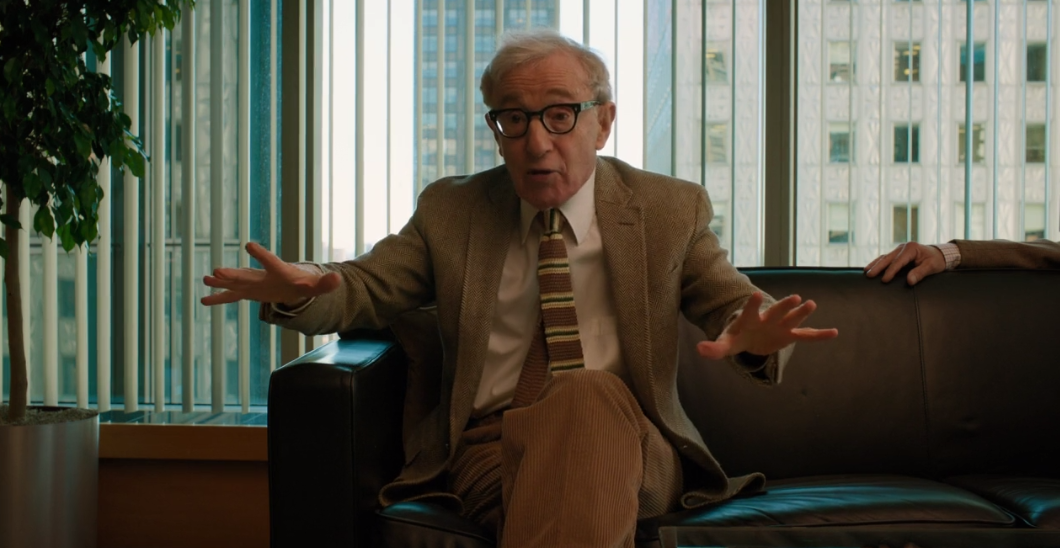
Let’s not forget that Woody Allen said about this project that he “regretted every second since [he] said OK”
Perhaps Allen finally came to this great realization about the unfit nature of the project once he finally began planning it. After all, in a Cannes interview between Dateline and himself in 2015, Allen revealed that he “doesn’t even know what a streaming service is” and, despite struggling with the project, followed through with it because he didn’t “want to disappoint them.”
Allen’s simple solution was to make a movie in six parts, which he has done successfully. However, a movie in six parts does not equate to true television. For someone who self-proclaims that he doesn’t watch television, it’s a good attempt. He embodies a new world in which he tries to achieve more than his resources enable him to. Through a crescendo of quirky characters and marriage counseling sessions, Allen leaves us at almost exactly the same point as where he starts. Any true impact the series can have is lost through lengthy dialogue (even for Woody Allen) and an over-abundance of comedic timing. That’s not even mentioning the poor pacing, which doesn’t fit a television series in the slightest. I understand the regrets Allen had throughout production of the show all too well. While it may not be a successful show, since Allen’s proven that he understands his mistakes, this entire situation can be considered a lesson well learned.
Verdict: Do Not Recommend

